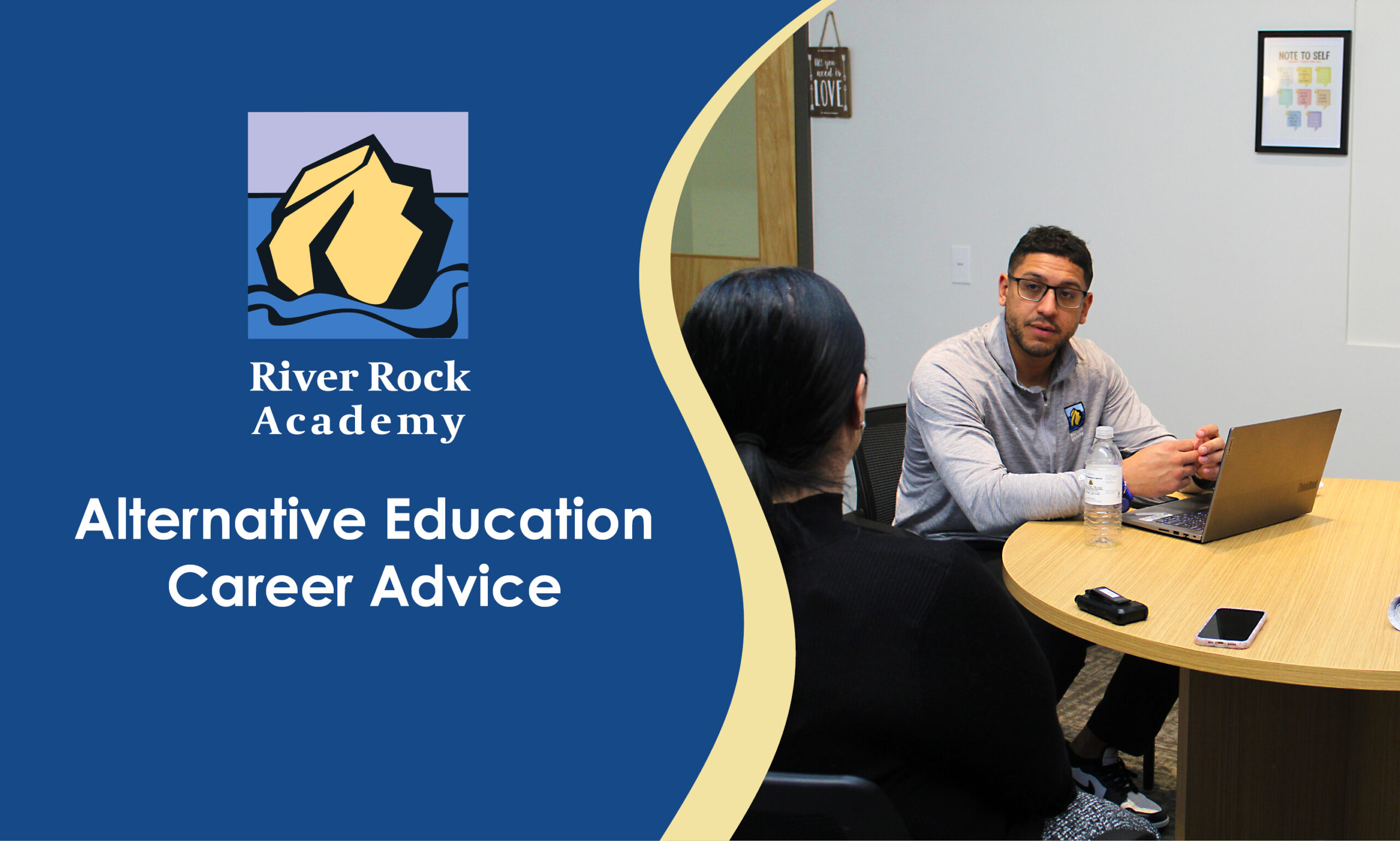Alternative Education Career Advice

For people pursuing a career in alternative education, questions are inevitable. How difficult is the job? What is the culture like? Am I a good fit for this line of work? We met with Lori Lewis, Special Education Director at our Spring Grove campus, to answer these questions!
What is the culture like at an alternative education school?
River Rock Academy is a very tight-knit group. We like to joke, laugh, and have fun, but that never comes at the expense of the most important part of the school: the students. In alternative education, it is imperative that you have a passion for your students. We want our students to have as much fun at school as we do, so we do our best to make sure our schools are a fun and nurturing atmosphere where students and teachers alike enjoy themselves. As a result, our attendance rate, even towards the end of the school year when most attendance rates drop, is still high.
Is it difficult to work in alternative education?
Many people have a preconceived notion that alternative education is a difficult industry to work in. However, people who work in the field will say otherwise. We love what we do and enjoy coming to work every day. People often assume this type of environment would be loud and harsh with a bunch of difficult students. However, the reality is that our students are great learners who make great progress on their behavioral and social skills goals. That’s why we are able to send so many students back to their home district. Obviously, there are days that are harder than others, but if you have a passion for seeing students improve, you will love what you do.
What are some ideal traits of someone working in alternative education?
It is good to have a sense of humor and the ability to not take things too seriously. We deal with a lot of serious issues, but it is our job to find the silver lining, both for ourselves and our students. Patience is also key, as well as empathy and understanding where our students are coming from. We have to understand that some of our students may come from a background that is unsupportive, so we serve as the stability in their life. Our students depend on us to be there for them. Another good trait to have is flexibility, because what worked yesterday may not work today. As the name implies, we have to be an alternative method for our students, which means making accommodations (both academic and emotional) that a typical school would not.
Is it rewarding to work with this population of students?
We need to love those who are least lovable because they need it the most. For many of our students, we are the stable adults in their life. To begin working with them, we must recognize that there are no “bad kids;” just good kids that may make bad decisions. We like to refer to them as “rough tough cream puffs.” Once again, preconceived notions make people believe that these students are unteachable. You have to reach them before you can teach them. It is challenging, but once you finally get through to a student and form a bond, you will see them grow right before your eyes. Students’ transformations are the ultimate reward for teachers. To see where they started at to where they are now would make anyone proud. Knowing that you were a crucial part of their transformation is what makes this job so rewarding.
What does it take to be successful?
In order to be successful, you have to have a love for your students, who they are, and where they come from. It is important to understand their trauma and situations. Throughout the years, the majority of teachers that fail are the ones who do not want to relate to their students. There are many factors that influence behaviors. While we may never have experienced a situation that one of our students has, we do our best to listen to them and understand where they are coming from.
